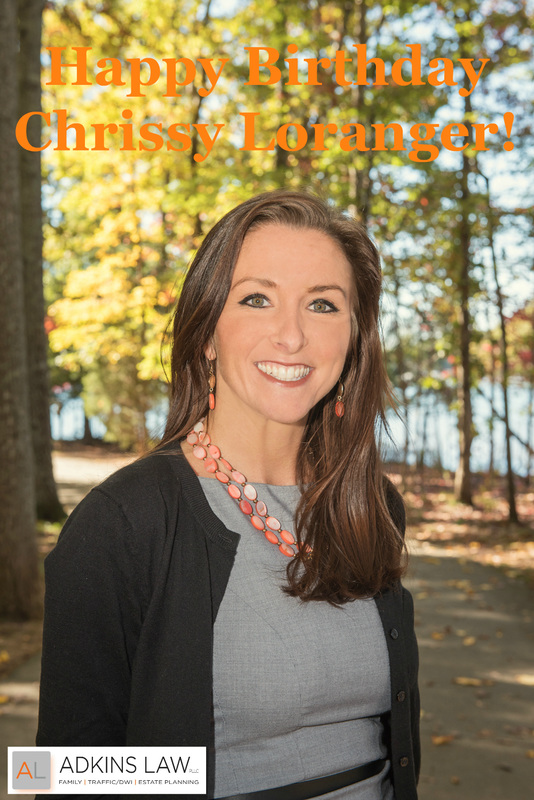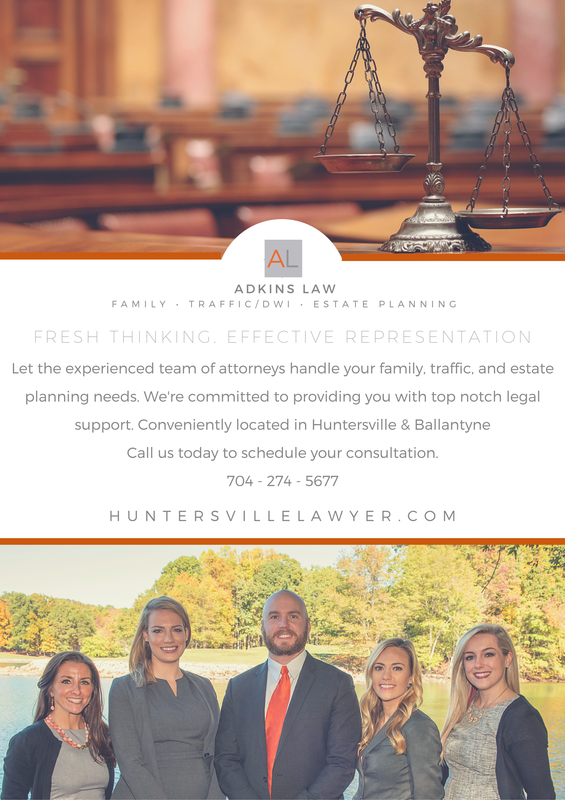 Step 1. Petition the court for Adoption. The petition must be signed by the adoptive parent(s), and may be filed in the county where the adoptee has lived for at least six consecutive months or from birth, where the child placing agency is located or where the petitioner has lived or been domiciled for at least the six consecutive months immediately preceding the filing of the petition. The following documents must be filed with the petition:
Once a petition is filed with all of the proper documents, the Clerk of Court will order the agency to make a report on the proposed adoption, if required for that type of adoption. Step 2. File the Report on Proposed Action with the court of adoptions by the Department of Social Services or whoever the child’s placing agency is, which are ordered to investigate and supervise the adoptive placement. The report will include the following: history and family background of the child, the birth parents, the adoptive parents, assessment of the adjustment of the child and the family, and a recommendation as to whether the adoption should be finalized. Step 3. File an itemized list of any out-of-pocket costs, such as filing fees or court costs, which must be done before the adoption can be finalized. Step 4. The adoption is accepted and finalized by the court. The Decree of Adoption handed down, which makes the child legally part of your family now. Step 5. Send the adoption documents to the NC Division of Social services where they are indexed for permanent retention then the child will be issued a new birth certificate. The new birth certificate will show the adoptive parents as the child’s parents and reflects the child’s new name, if changed. NOTE: that all laws relating to adoption are found in Chapter 48 of the North Carolina General Statutes. For more information please visit https://www.ncdhhs.gov/dss/adopt/ Adkins Law has locations in Huntersville and Ballantyne. To arrange a consultation, contact Adkins Law.
3 Comments
 Step 1. Contact your county’s Department of Social Services who provides and arranges for adoptions services at no cost for children in the foster care system. Step 2. Department of Social Services will ask about your family background and composition. You will also be asked for a description of the child you seek to adopt. You must complete an application for adoption to begin the process. Step 3. You must complete the Pre-Placement Assessment. The assessment requires you to participate in a series of meetings with the social worker who will help you understand both the adoption process and your responsibilities as an adoptive parent. You may be required special classes known as Model Approach to Partnerships in Parenting-Group Preparation and Selection to prepare you to become an adoptive parent of a child from foster care. These parenting classes will provide you with important information about the skills needed to parent a child who has experienced loss and trauma. They will also help you determine your ability to provide a home for such a child. Step 4. Once your Pre-Placement Assessment is completed, your social worker will work with you to locate a child or sibling group whose needs can be met in your family. This may take some time so it is important to be patient during this time. Step 5. Once the child has been identified, a visitation plan is established so the child and your family can get to know each other before a placement is made. Step 6. You bring the child home. All children, even infants, will have a period of adjustment following placement which requires must patience, tolerance, and love during that time. Step 7. The supervisory period in North Carolina generally requires the child be in your home for six months before the adoption process can be complete. The social worker will visit your home to provide support and assistance during this period of time. Step 8. Legalize your adoption in court. It is highly recommended that an attorney be retained for filing the legal documents. However, adoptive parents can chose to file their own legal documents. If you chose to hire an attorney the legal fees are arranged between the adoptive parents and the attorney. The laws relating to adopting in North Carolina can be found in Chapter 48 of the North Carolina General Statutes. *For more information visit https://www.ncdhhs.gov/dss/adopt/ Adkins Law has offices in Huntersville and Ballantyne. Contact Adkins Law to arrange a consultation. Memorial Day is a federal holiday in the United States for remembering the people who died while serving in the United States' armed forces. This holiday, which is observed every year on the last Monday of May, originated as Decoration Day after the American Civil War in 1868. The Grand Army of the Republic, an organization of Union veterans, established Decoration Day as a time for the nation to decorate the graves of the war dead with flowers. By the 20th century, several Confederate holiday traditions, celebrated on different days, merged with Decoration Day, to form Memorial Day, which extended to honor all Americans who died while serving in the United States military. Adkins Law has locations in Huntersville and Ballantyne. To schedule a consultation, contact Adkins Law. Contact Adkins Law to arrange a consultation to discuss your family law needs. Adkins Law has offices in Huntersville and Ballantyne for your convenience. Adkins Law has locations in Huntersville and Ballantyne. Contact Adkins Law to arrange a consultation.  You are driving through the Great Smoky Mountains National Park and you receive a speeding ticket from a Federal Park Ranger - what do you do? While this is not a common occurrence, it does occasionally happen. Citations issued by federal officers can impact your license just as citations issued by state and local police. The Central Violations Bureau (CVB) is the national center responsible for processing tickets issued and payments received for petty offenses (i.e. speeding ticket) charged on a federal violation notice. Violations that occur on federal property such as federal buildings, national parks, military installations, post offices, Veteran Affairs medical centers, national wildlife refuges, and national forests. The Central Violations Bureau processes violation notices for violations of federal law that occur outside federal property as well. (www.cvb.uscourts.gov.) How do I pay for the ticket? All payments must be received on or before the scheduled court date and once you pay your ticket then you do not have to appear in court. You can pay for your ticket online at https://www.pay.gov/public/form/start/4624405/. You may also make a payment by calling the Central Violations Bureau during normal business hours at (800) 827-2982 or mail a check or money order to: Central Violations Bureau P.O. Box 71363 Philadelphia, PA 19176-1363 How will I be notified of my court date (if you want to contest the ticket)? The Central Violations Bureau will notify you by mail of your scheduled court date. Your Notice to Appear will usually arrive in the mail within 4-8 weeks from the issuance of the ticket. Note that you will be required to appear in federal court not state if you chose to contest the ticket. How do I check the status of my federal ticket or whether the payment went through? Call the Central Violations Bureau by call 1-800-827-2982, use option 4 to hear an automated recording with the status of your ticket. Before you pay off your federal ticket, you may want to contact a traffic lawyer to discuss your options and how this may effect your driving privileges. If you would like to speak with a traffic attorney, contact Adkins Law for a free traffic consultation. Adkins Law has locations in Huntersville and Ballantyne for your convenience.  A person who dies without a will is referred to have died intestate. The court will distribute the decedent’s estate to the surviving spouse first and then remaining balance will be distributed to the decedent’s descendants by using the Per Capita at Each Generation method. The court follows the intestate rules provided under the North Carolina General Statute (“NCGS”). Spouse’s portion of the decedent’s estate: NCGS 29-14 provides the rules for what portion of real property and personal property the surviving spouse shall receive from the decedent’s estate. Real Property For real property the following rules apply under NCGS 29-14(a). First, if the decedent has no surviving children or grandchildren and their parents are also deceased, then the spouse receives all of the real property. Second, if the decedent has one child or any lineal descendant (grandchild) of a deceased child that has survived them, then the spouse receives only one-half interest in the real property. Third, if there is: two or more children, one child and any lineal descendant of one or more deceased children, or lineal descendants of two or more deceased children that has survived the deceased; then the spouse receives one-third interest in the real property. Lastly, if there are no surviving children or lineal descendants but one or both of the parents survived the deceased, then the spouse receives only one-half of the real property while the remaining portion goes to the surviving parent or parents of the deceased. Personal Property For personal property the following rules apply under NCGS 29-14(b). First, if the decedent has no surviving children or grandchildren and their parents are both deceased then the spouse receives all of the personal property. Second, if the decedent has one child or any lineal descendant (grandchild) of a deceased child that has survived the deceased, then the spouse receives the first $60,000 plus one-half of the remaining balance of personal property. Third, if there is: two or more children, one child and any lineal descendant of one or more deceased children, or lineal descendants of two or more deceased children that has survived the deceased; then the spouse receives the first $60,000 plus one-third of the remaining balance of personal property. Lastly, if there are no surviving children or lineal descendants but one or both of the parents survived the deceased, then the spouse receives the first $100,000 plus one-half of the remaining balance of personal property while the remaining portion goes to the surviving parent or parents of the deceased. Surviving children and lineal descendant’s share: Under NCGS 25-16 provides that the court shall use the Per Capita at Each Generation method to distribute the remaining portion of the decedent’s real and personal property. The Per Capita at Each Generation, provides the initial division of shares of interest is made at the closest generation at which one or more descendants are alive, but the shares of the deceased persons on that generational level are treated as one group and are dropped down and divided equally among the representatives in the next generation. Note that NC does not recognize step-children to take if their step parent dies intestate. However, NC treats half-blood and whole-blood descendants the same. If you would like to speak with an estate planning attorney in regards to drafting a will, please contact Adkins Law for a free estate planning consultation. Adkins Law has offices in Huntersville and Ballantyne for your convenience. At Adkins Law, we believe in providing top-notch, quality legal services at affordable prices. If you need to speak with an attorney regarding a family law matter, traffic citation or issue, or for your estate planning needs, contact Adkins Law to arrange a consultation. Adkins Law has offices in Huntersville and Ballantyne for your convenience. Contact Adkins Law if you need to arrange a consultation with a family law attorney. Adkins Law has offices in Huntersville and Ballantyne for your convenience. |
Archives
January 2022
|
Lake Norman Location
9620 Sherrill Estates Road
Huntersville, North Carolina 28078
(704) 274-5677 main
(704) 231-5762 text
(877) 208-7577 fax
9620 Sherrill Estates Road
Huntersville, North Carolina 28078
(704) 274-5677 main
(704) 231-5762 text
(877) 208-7577 fax






